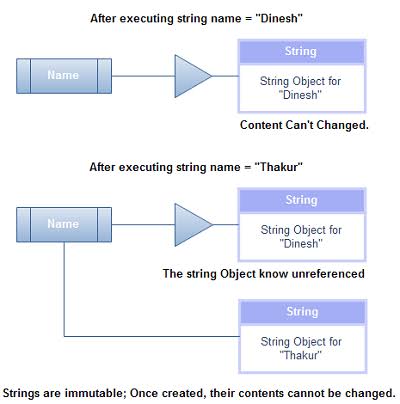Why Are Strings Immutable in Java? Enhancing Code Integrity
Why Are Strings Immutable in Java? Enhancing Code Integrity
Blog Article
What Is Immutable Strings and Just How It Functions
In the realm of programs, comprehending the principle of unalterable strings is critical for producing robust and protected applications. Immutable strings describe strings that can not be changed after they are developed, guaranteeing data stability and predictability within the code. This basic concept plays an important function in numerous shows languages and uses an unique strategy to taking care of data. By checking out the details of just how immutable strings operate, one can uncover a world of advantages and possibilities that can boost the top quality and effectiveness of software program development.
The Basics of Unalterable Strings
Unalterable strings, as a basic principle in programs, are character series that can not be transformed as soon as they are developed. This means that when a string is appointed a worth, that worth can not be altered. In languages like Python and Java, strings are immutable items, resulting in various ramifications in regards to memory administration and data stability.
Among the key benefits of immutable strings is that they supply a feeling of safety and security in data adjustment. Because the material of an immutable string can not be modified, it guarantees that the initial data stays undamaged, decreasing the risk of unintentional adjustments during program execution (Why are strings immutable in Java?). This building likewise streamlines debugging processes, as programmers can trust that as soon as a string is specified, its worth will not be inadvertently changed
Furthermore, immutable strings promote efficient memory usage. When a new string is created based on an existing one, as opposed to changing the initial string, the brand-new value is kept individually. This method improves efficiency by decreasing memory fragmentation and streamlining memory allotment procedures. On the whole, comprehending the basics of immutable strings is important for grasping programming ideas and optimizing code effectiveness.
Advantages of Immutable Strings
Structure upon the safety and security and performance benefits of immutable strings, their benefits encompass improving code dependability and streamlining concurrent shows tasks. By being unalterable, strings can not be customized after creation, which gets rid of the danger of unintentional changes in the information they save. This inherent immutability guarantees that when a string is created, its value continues to be continuous throughout the program's execution, minimizing the opportunities of insects brought on by unforeseen modifications.
Additionally, immutable strings add to code reliability by making it easier to reason about the state of a program. Given that strings can not be altered, designers can rely on that a string will certainly always hold the same worth, simplifying debugging and upkeep initiatives. This predictability brings about a lot more secure and reliable codebases.

Application in Shows Languages
Within numerous programs languages, the consolidation of immutable strings is a fundamental element that impacts just how information is taken care of and adjusted within code structures. The execution of immutable strings varies throughout different programs languages, with each language offering its own devices to sustain this concept.

On the other hand, languages like C and C++ do not have integrated assistance for immutable strings. Designers in these languages should by hand implement immutability by enforcing rules within their code to avoid direct modifications to string objects.
Finest Practices for Collaborating With Immutable Strings
When dealing with immutable strings in programming languages like Java and Python, adhering to ideal practices makes certain safe and secure and effective information adjustment. Among the crucial ideal practices is to make use of StringBuilder or StringBuffer as opposed to directly adjusting strings, particularly when managing substantial concatenation operations. These courses give mutable choices for string adjustment, assisting to prevent unneeded memory allotments and improving performance.
One more best technique is to utilize string interpolation or format works provided by the language as opposed to hands-on concatenation. This not only enhances readability but additionally aids in protecting against common mistakes such as unintentional string modifications. In addition, when collaborating with delicate data such as passwords or API keys, it is critical to stay clear of storing them as simple message in immutable strings. Utilizing protected storage space devices like char arrays or specialized libraries for managing delicate info assists reduce protection dangers linked with immutable strings.
Real-world Applications and Instances
Exploring useful implementations of immutable strings in various industries reveals their substantial effect on data stability and system click reference integrity. In the healthcare market, immutable strings play an essential role in making sure the safety and privacy of individual data. By stopping unauthorized alterations to sensitive details such as medical documents and prescriptions, immutable strings aid keep compliance with strict privacy laws like HIPAA.
Financial establishments additionally benefit from the unalterable nature of strings to improve the these details safety and security of client information and transaction documents. Immutable strings aid avoid fraudulence and unauthorized modifications to economic info, providing a durable defense against cyber risks and making certain the trust and confidence of clients.

Conclusion
Ideal practices for working with immutable strings include preventing direct modifications and using methods that return new string objects. Real-world applications of immutable strings consist of information file encryption, caching, and string adjustment jobs.
Immutable strings refer to strings that can not be modified after they are created, guaranteeing information integrity and predictability within the code. When a new string is produced based on an existing one, rather than modifying the original string, the brand-new value is kept individually.In languages like Java and Python, strings are unalterable by default, indicating that as soon as a string things is created, its worth can not be altered - Why are strings immutable in Java?. Finest practices for functioning with immutable strings consist of preventing direct modifications and utilizing methods that return brand-new string things. Real-world applications of immutable strings consist of data security, caching, and string control jobs
Report this page